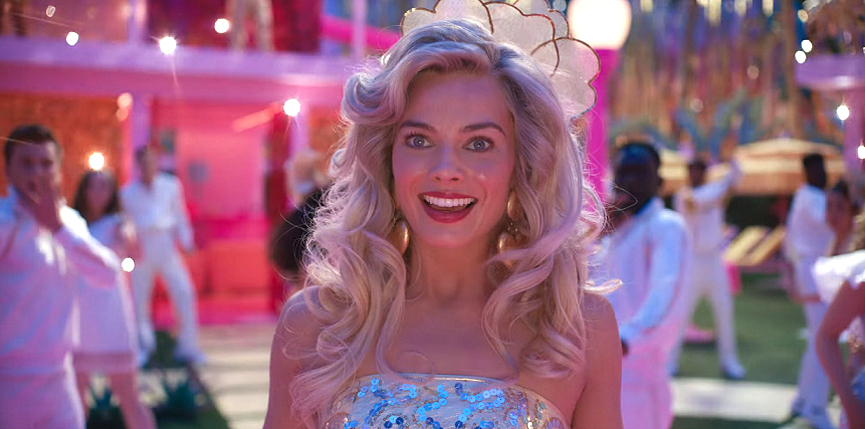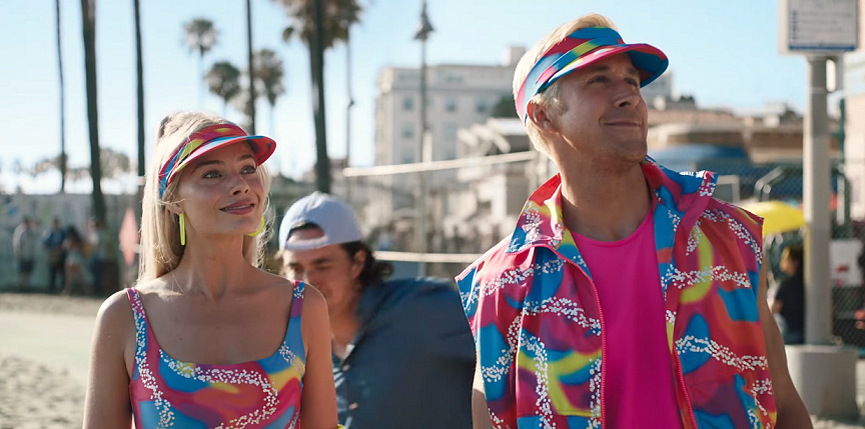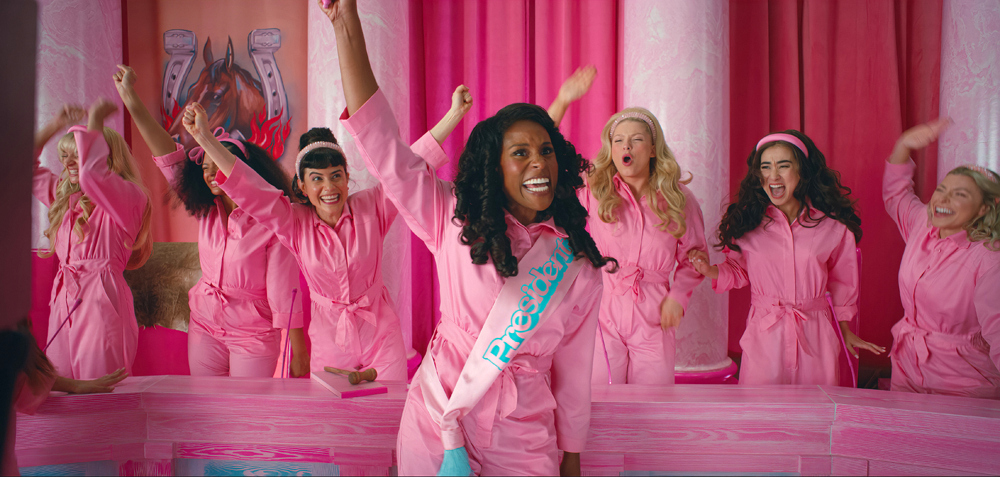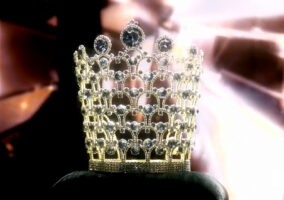 Pin
Pin
Greta Gerwig’s Barbie movie is finally here after one of the most enjoyably (depending on who you ask) aggressive film marketing campaigns since the Before Times and yes, it’s everything people say it is. Literally. Part corporate IP advertisement, part feminist manifesto, part satire and critique of both of those things, the film sets up an impossible goal for itself and almost fully realizes it, which is a kind of triumph. That sounds a bit more backhanded than we intend it to be. Does it contradict itself? Not exactly, but Barbie is large and contains multitudes. In every way, Barbie is a big swing of a film, so if it doesn’t exactly hit the ball out of the park, it still drives in a couple of runs and puts a man on third, so to speak. Herein endeth the sports metaphors in this review. In short, you can’t really celebrate a cultural icon and critique it at the same time if the owners of that icon are helping to write the checks on the very movie you’re trying to make. You also probably can’t effectively critique the entire patriarchy using a doll, but as with all the story’s other shortcomings, the filmmaker seems deeply aware of this.
Let’s state this outright before we pick at some things: Barbie is good. It’s funny, sweet and surprisingly emotional with some simplistic but nonetheless effective observations about gender roles and patriarchy. But here’s the problem with a months-long, aggressive blockbuster film marketing campaign: all of the best bits in the film had already been released to the public in the weeks before it opened. You’ll find yourself mildly chuckling at all of the funniest parts, largely because you spent your guffaws when you saw them the first time. The film suffers from being overstuffed with Barbies and Kens, the vast majority of whom get no more than a half-dozen lines. This is meant to underline the idea that Barbie can be – and is – everything, but it means that there are, by our count, only five dolls that get any sort of personality or presence in the film. Some of the cameo dolls manage to make a meal of their limited screen time, but many of them just seem to pass through. Having said that, Ryan Gosling really is as funny and committed to the bit as everyone says. It’s not crazy to suggest that he should be considered when awards nominations come out. We’re not sure if its ironic or not that this is a film as much or more about Ken than it is about Barbie. We were pleasantly surprised by how much of the comedy Issa Rae was shouldering nicely. She made the most of every single line and there was something of a biting undertone to her Barbie that made her portrayal stand out among some of the more… doll-headed approaches. Gerwig (who co-wrote the film with her partner Noah Baumbach) did something sly and rather subversively cute by pairing Weird Barbie (Kate McKinnon) with two discontinued Ken dolls who we won’t name (but we’ll save you the googling on one of them: yes, he was a real Ken produced by Mattel) as well as several forgotten or poorly designed models of discontinued Barbies, all of whom form of a sort of queer-coded family of social outcasts.
 Pin
Pin
Margot Robbie is absolutely perfect as Barbie, infusing her with a wide-eyed optimism and naivete that absolutely never tips over into “dumb blonde” territory. There’s a truly lovely moment when Barbie, having entered the real world, encounters her first elderly person, allowing Robbie to showcase how much heart and intelligence this doll actually has. America Ferrera’s character is central to the story in a way we don’t want to entirely reveal, but she’s otherwise rather thinly written. The film chooses to rest all of her anxiety and depression on being a woman, which is thematically sound, but it’s hard to create a character with nuance when their problems are societal and not personal. Even so, she gives one of the film’s best performances and delivers one hell of a four-minute monologue on all of the pressures, contradictions and frustrations every woman is expected to face; one that prompted several audible whews (in the “Whew, you just said a mouthful, sister” sense) throughout the theater when she finished. As much fun as the extended cast can be, the whole film rests on Ferrera, Robbie and Gosling. Fortunately, all of them are fully up to the task.
The production design by Sarah Greenwood and the costumes by Jacqueline Durran are simply some of the best of the year (but let’s face it: you knew that already), with several sets and looks already reaching a semi-iconic status in the culture. No one has ever realized the world Barbie lives in as fully and as thoughtfully as this team, from the oversized hairbrushes to the perpetually empty cups to the hard plastic waves never crashing on Barbie Beach. There are two big musical numbers that are so good they made us wish for at least twice as many, one of which will almost certainly be submitted for nomination. This film would have worked beautifully as a full-blown musical, although we suppose the inevitable Broadway adaptation can handle that part when the time comes.
 Pin
Pin
Still, it’s hard to escape the conclusion that the film tries to do a bit too much, never more evident than in the third act, which rushes through a lot of important observations in order to get to an ending in under two hours. At exactly one point and one point only in the film the fourth wall is broken and Margot Robbie is named, during a moment that could have been biting and cheeky but just felt wholly out of place in a film eagerly devoted to maintaining its own magical reality. It’s not a big deal, but it felt like the film stuffing one more thing – meta commentary – into a story already overstuffed with goals. It occurred to us that the critiques of Barbie may have been more biting if this hadn’t been a Barbie movie at all, but a pastiche or satire of the doll. In the end, Barbie has to triumph, which means the patriarchal critiques that drove most of the film, as well as the subtle criticism of corporate overlord Mattel, have to be gently set aside in order for her to do so. After all, it’s not like these issues can be solved or overcome, even in a film dripping with magical realism (the issue of Barbie’s identity crisis is ultimately solved by a ghost, for instance). Having said that, the film ends on a laugh-out-loud funny line that actually did make us wonder how they ever got Mattel to agree to it.
But Greta Gerwig really tried to do something with Barbie; something with meaning and emotion, something that paid homage to the millions of little girls and boys who idolized her and kept her myth alive while also acknowledging the very real and pointed critiques of her, and the inescapably sad conclusion that no matter how much you might love Barbie, eventually almost everyone outgrows her. The story of a toy who has been outgrown or cast aside is a classic tale; from Toy Story to The Velveteen Rabbit, there’s no denying it can pack an emotional wallop when done right. The twist here is that Barbie herself is the one outgrowing Barbie. It’s a clever and illuminating take that allows Gerwig a lot of leeway to explore much bigger and more important themes. The film tries to do too much, but we can’t be anything less than deeply impressed that anyone came up with too many smart, funny, biting things to say in a movie about Barbie, of all things.
Sabyasachi’s Newest Collection Next Post:
RUPAUL’S DRAG RACE ALL STARS: Grand Finale
-
 Pin
Pin
RUPAUL’S DRAG RACE: Grand Finale
-
 Pin
Pin
Pop Style Opinionfest: Where Did It All Go Wrong for J Lo?
-
 Pin
Pin
RUPAUL’S DRAG RACE: LIPSYNC LALAPARUZA SMACKDOWN – REUNITED
Please review our Community Guidelines before posting a comment. Thank you!
